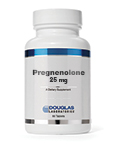Vitamin B12 is essential for normal energy
metabolism of carbohydrates, fat and protein. As a
cofactor for methylmalonyl-CoA mutase enzymes,
vitamin B12 helps convert odd chain fatty acids and
branched chain amino acids into succinyl-CoA, a
common citric acid cycle intermediate. Vitamin B12
is also required for nucleic acid (DNA) synthesis,
methionine synthesis from cysteine, and normal
myelin synthesis in the nervous system. Along with
vitamin B6 and folic acid, adequate levels of vitamin
B12 are required to maintain normal plasma
homocysteine levels. Elevated plasma homocysteine
may be an independent risk factor for developing
cardiovascular disease.
There are two distinct mechanisms for intestinal
vitamin B12 absorption; receptor-mediated absorption
and passive diffusion. In the first, vitamin B12 attaches
to a salivary “R-binder” protein which transports it
into the small intestine, where vitamin B12 is released.
The vitamin then binds to “Intrinsic Factor” (IF), a
glycoprotein normally produced by the gastric parietal
cells. This vitamin B12-IF complex is carried down to
the ileum, where it binds to mucosal receptors.
Finally, the complex is absorbed and bound to serum
vitamin B12-binding proteins. The second absorption
mechanism, passive diffusion, does not require any
carriers, such as B-binder or IF. Only about 1% of
free vitamin B12 is passively absorbed, but this can be
nutritionally significant with higher dietary vitamin
B12 intakes.
The elderly, HIV/AIDS patients, and strict
vegetarians are often at risk for vitamin B12
deficiency, either due to low dietary intake or
impaired absorption.
The receptor-mediated absorption pathway is subject
to numerous genetic and pathologic defects which
can severely impair normal vitamin B12 absorption.
These defects include hereditary absence of IF
production, gastric atrophy, gastrectomy, and small
intestinal disorders affecting the ileum, such as
gluten-induced enteropathy, regional enteritis,
chronic diarrhea, and intestinal resection. Affected
individuals depend almost exclusively on the passive
diffusion pathway, which requires high dietary
vitamin B12 intakes.

* These statements have not been evaluated by the Food and Drug Administration. This product is not intended to diagnose, treat, cure, or prevent any disease.
This product was added to our catalog on Wednesday 04 June, 2014.





